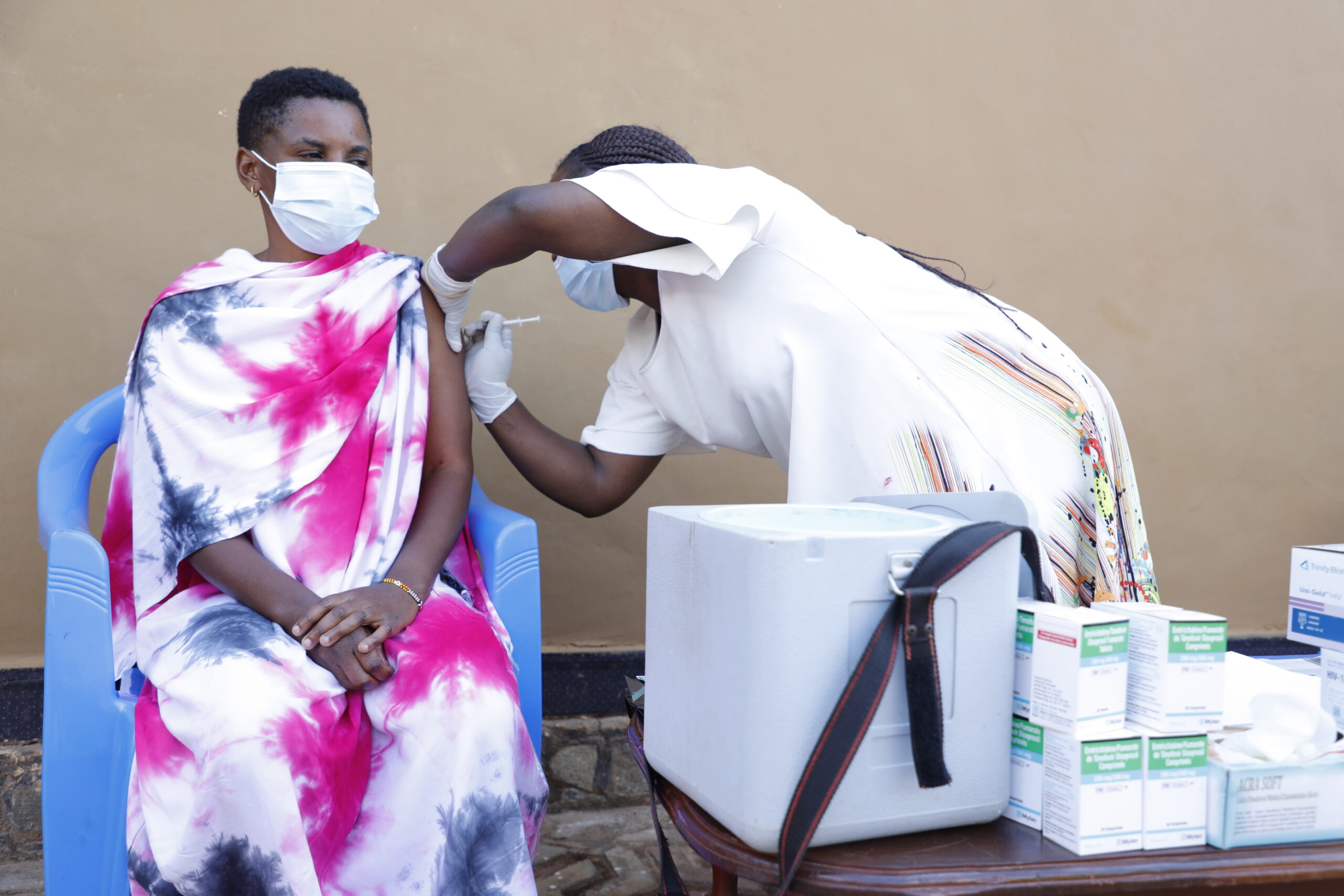Agness John, Senior Technical Officer, Communications and Knowledge Management
Despite improvements in COVID-19 vaccine availability in Tanzania, reaching key and vulnerable populations (KPs), including female sex workers (FSWs), remains a challenge. Female sex workers are often highly mobile and have close interactions and physical contact, placing them at higher risk of acquiring COVID-19 than the general population.
Most of my clients are from outside Tanzania and Mbinga Town who come from their countries for business activities. I do not even know the origins of most of the clients. This puts us in an even more high-risk situation for contracting COVID-19. Therefore, it is essential to prioritize COVID-19 vaccines among female sex workers. Nonetheless, female sex workers face significant challenges in receiving COVID-19 vaccines at the local health facilities.
Ms. Zubeda Mhagama
Female sex worker in Mbinga Town Council, Ruvuma RegionDespite the increased chance of FSWs being exposed to COVID-19, many face challenges in accessing COVID-19 vaccines from health facilities for several reasons, including stigma and discrimination experienced at health care facilities, supply constraints, hesitancy among vaccination teams to provide vaccination services to KPs, and low demand for COVID-19 vaccination. There is also an element of vaccine hesitancy due to pervasive myths and taboos (for example, beliefs that COVID-19 vaccines cause impotence in men and destroy the dignity of Africans).
The EpiC project in Tanzania has been implementing biomedical, behavioral, and structural interventions with FSWs since 2019. EpiC implements these services through 19 local civil society organizations (CSOs), five of which are KP-led, in eleven regions of Tanzania’s mainland: Arusha, Dar es Salaam, Dodoma, Iringa, Kilimanjaro, Lindi, Morogoro, Mtwara, Njombe, Ruvuma, and Shinyanga. EpiC and its local partners establish trust, generate demand for services, and expand differentiated service delivery outside of traditional health care settings. With support from the U.S. Agency for International Development, EpiC is now leveraging its existing HIV service provision structures and personnel such as peer educators, peer navigators, community leadership, peer referrals, KP-friendly health care workers (HCWs), and education and outreach systems to optimize access to COVID-19 vaccines among FSWs in five of the project’s regions, including Ruvuma.
In Ruvuma, the project is working to improve access to COVID-19 vaccine services among FSWs at places where they gather and increase HCW’s competencies to deliver respectful and appropriate vaccine services.
The EpiC project accorded me training on COVID-19 vaccination. It equipped me with knowledge on responding to the existing misconceptions. I work closely with community mobilizers including village executive officers, village chairpersons, and community health workers to meet the general population’s vaccine needs. I work with peer educators and peer navigators for key and vulnerable populations.
Olisa Kipesile
Medical Attendant at UMATI dispensary in Ruvuma Region.
After receiving training on COVID-19 vaccine types, side effects, and how to respond to myths and taboos, HCWs, peer educators, and peer navigators have been addressing vaccine hesitancy and misinformation in the community. “Many female sex workers were worried the COVID-19 vaccination would make them sick and lead to their inability to work,” said Neema Kidaba, a peer navigator from Mbinga Town Council in Ruvuma Region. Sharing her experience further, Neema explained, “As a peer navigator, I have set an example by being vaccinated. I also ensure that health care workers address the clients’ concerns before vaccinating them. The vaccination arrangement at the client’s locations, especially those who receive HIV/AIDS services, significantly contributes to vaccine uptake among them.”
EpiC supported the Government of Tanzania to vaccinate 977,095 people (102% of the eligible population) in Ruvuma. Through EpiC’s demand creation and vaccination appointments organized by peer educators, HCWs are integrating COVID-19 vaccination into HIV service provision for KPs. This has increased the demand for vaccines and resulted in increased uptake among KPs across the five regions (Iringa, Lindi, Mtwara, Njombe, and Ruvuma) where the COVID-19 project is implemented.
Featured image: A health care worker trained by the EpiC project administers a COVID-19 vaccine to a female sex worker. Photo by Agness John.

